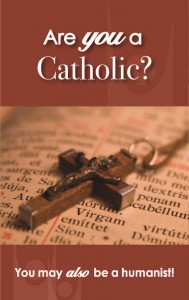Are You a Buddhist? Hindu? Sikh? Christian? You May Be a Humanist, Too!

In 2008, the Pew Forum on Religion and Public Life published a survey on America’s religious landscape, and for the first time, the research found that there are millions of Americans who retain the label of a traditional religion but also indicate that they don’t believe in an intervening god.
What does this mean for the freethought movement—a movement that historically waited for people to shed their traditional faith before encouraging them to join? It turns out that a different approach needed to be reconsidered.
I began by examining Western and Eastern religious traditions to discover their commonalities and possible alignment with humanist principles and values. Equipped with such knowledge, we would be in a better place to successfully suggest these folks add “humanist” as an additional identity and possibly become active in the humanist movement. If people reject the belief in the divinity or believed that god is some sort of an “impersonal force,” then what in their traditions are in accordance with the humanist worldview?
As a result, the Paths to Humanism project was born. With extensive research and the support of religious leaders, the American Humanist Association developed a series of informational brochures for each major religious tradition—Buddhism, Catholicism, Hinduism, Islam, Judaism, Paganism, Protestantism, Quakerism, Sikhism, and Unitarian Universalism. Each brochure includes brief overviews of the history of the religious tradition, several comparative quotes highlighting the “humanism” of each tradition, and answers to the question, “But how can I be a (name of the religion) and a humanist?” We even created a brochure for atheism—we recognize that atheism is not a religious tradition, but we have discovered that thousands of self-identified atheists may also not yet know what humanism is, even though they are likely to be a humanist, too!
The brochures have been very well received and used at general tabling events and conferences where it’s likely to attract an audience of many different faiths. We also are developing longer research papers on each of the traditions in which we explore the various faiths, commonalities, and differences in greater detail.
The brochures and research papers vividly illustrate that numerous religious traditions share many principles and values that are the basis of and common to humanism. Indeed, many people find humanism from a wide variety of paths.
The American Humanist Association seeks to build bridges between secular humanists and religious humanists of all identities. Our goal is to find common cause with humanists on issues affecting the quality of our civilization regardless of what words they use to call themselves. Productive dialogue begins when philosophical humanists from a variety of backgrounds seek to understand and communicate with each other. I encourage humanists and atheists who have religious friends or family members to share our Paths to Humanism brochures with them and give us your feedback.
